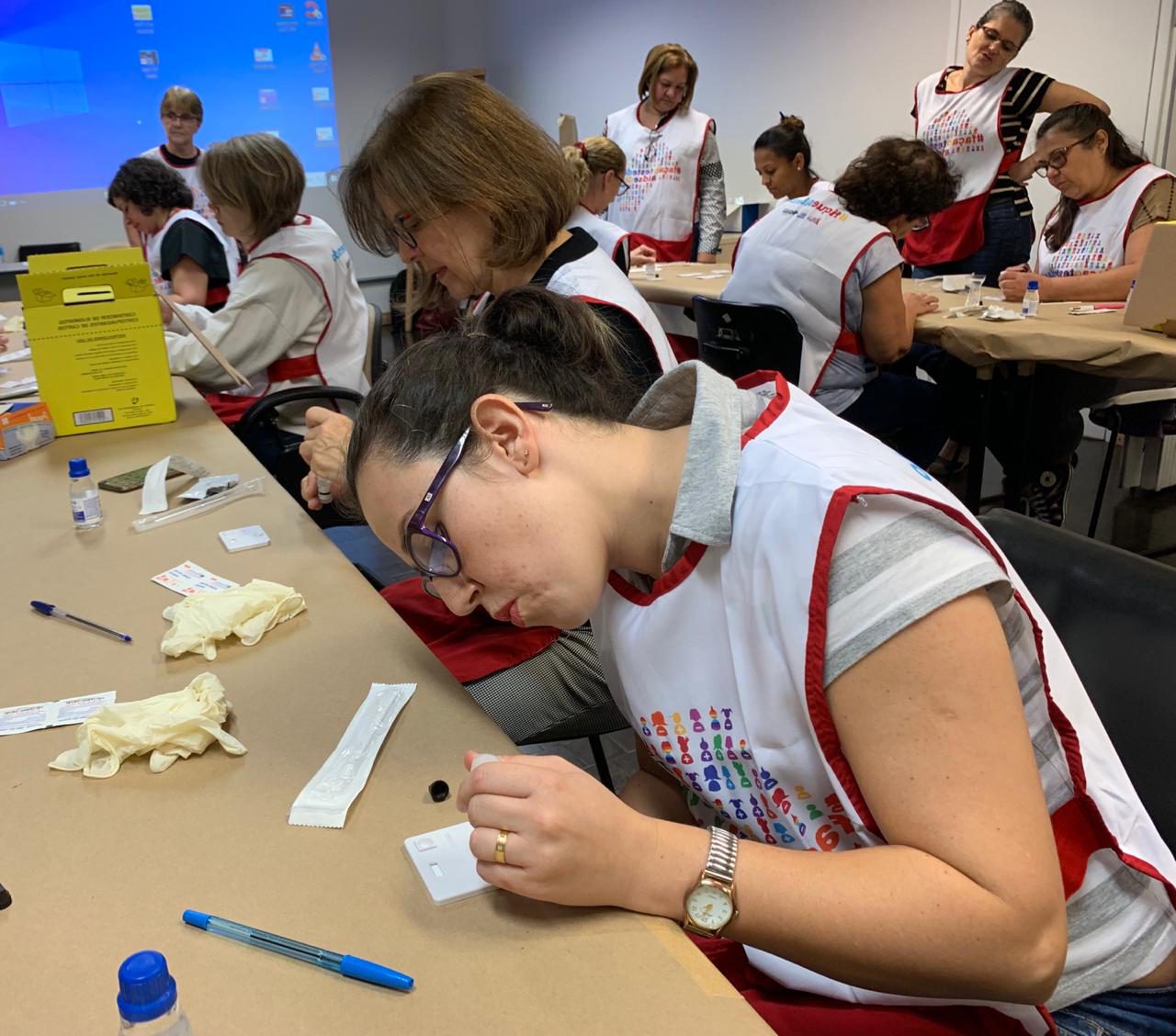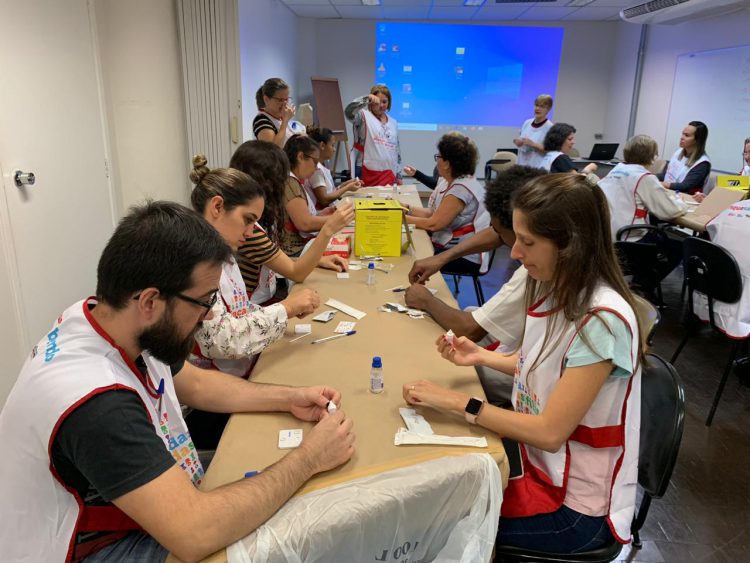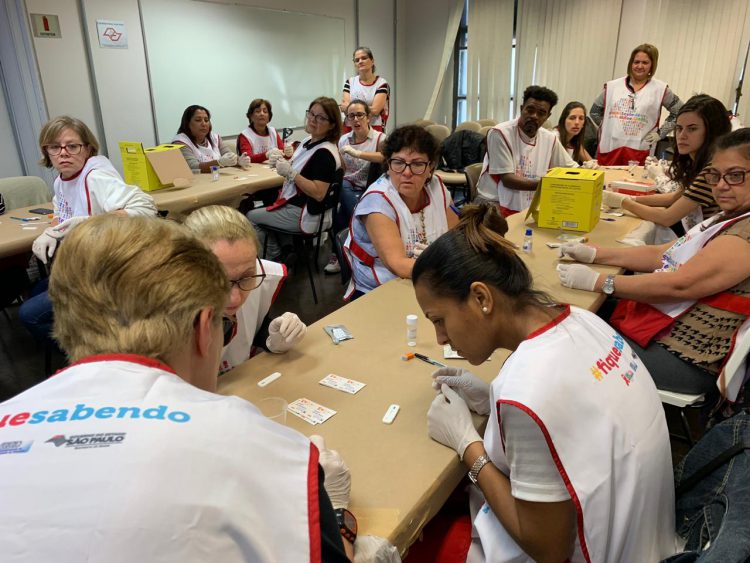Seeking to reinforce the reach of university extension in actions directly linked to teaching and research, the USP Diversity and Training for Rapid Tests for Diagnosis of HIV, Syphilis and Viral Hepatitis course was held on August 8th and 9th in São Paulo.
Result of a partnership between UNAIDS and the University of São Paulo, through the USP Diversity Program from the Office of the Provost for Culture and Extension, the activity was focused on the public engaged in health care and also included the participation of the Center for Reference and Training STD / AIDS, the State Health Secretariat of São Paulo, and promoted the qualification of students and professionals in the use of technologies available for carrying out rapid tests for viral infection detection.
In order to strengthen the prevention of these viral infections, the activity was guided by the concept of multiplying agents together with course participants to achieve an effective social impact, including also the achievement of the United Nations’ Sustainable Development Goals.
The Training Course was held in São Paulo, the first of a series of editions which will take place in the other cities where USP owns campuses, followed by Ribeirão Preto, in September, and Bauru in October.
Participated in the training 18 health professionals, active in the municipal and state public health care system, in the Aids Healthcare Foundation (AHF) and in the University of São Paulo, in an audience made up of nurses, nursing technicians, pharmacists, dentists, among others . They are professionals from the Health Care Units of the University of São Paulo, the municipality of São Paulo and the State of São Paulo, such as Basic Health Care Units at USP (UBAS-USP), University Hospital at USP, Specialized Care Service São Paulo (SAE), São Paulo Reference and Training Center (CRT / STD / aids), STD / AIDS Reference Center, Testing and Counseling Center (CTA), Aids Healthcare Foundation (AHF) in Brazil.
For the coordinator of the USP Diversity Program, Ana Paula Morais Fernandes, the course allowed professionals working in the prevention of STD / AIDS from various health services, municipal and state audiences or international foundations, to be qualified to make the diagnosis report and share their experiences in assisting the vulnerable population. Ana Paula, professor at the USP School of Nursing in Ribeirão Preto, points out: “The training promoted deepening on essential topics such as pre and post testing reception and ethical aspects for the performance of testing in different contexts. Certainly the course has the potential to strengthen efforts to reach the goals of reducing the epidemic that our country is experiencing. The health ministry estimates a 2,000% increase in syphilis cases in recent years. Viral hepatitis is also a major health challenge, with approximately 657,000 individuals with active viremia and possible transmitters of hepatitis C in Brazil. For type B hepatitis, seroprevalence is even greater. For HIV, the highest number of cases is among men who have sex with men (MSM) ”.







